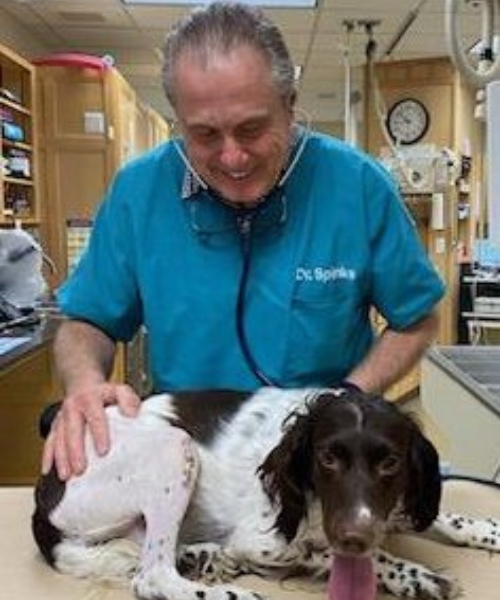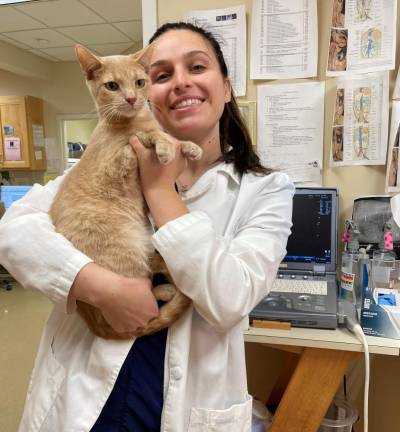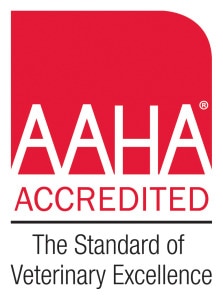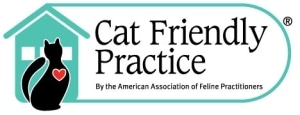Service We Offer
Pet Vaccinations

The Importance of Pet Vaccinations
To maintain the health of your beloved dog or cat, it’s crucial that you stay up-to-date with their vaccinations. Vaccines play a vital role in preventing your pet from falling ill to common diseases by stimulating their immune system to produce protective antibodies.
Pet vaccinations boast high effectiveness with minimal risks and negligible side effects. While the specific risks and side effects may vary depending on the vaccine, consulting your veterinarian can provide further insight into what’s best for your furry friend.
By vaccinating your pet, you’re ensuring their protection against potentially life-threatening diseases, saving you from hefty treatment expenses and the heartache of watching them suffer. Remember, preventing illness through vaccination is always better than having to treat it later.

What Vaccinations Does My Pet Need?
Vaccinations for your pet are typically categorized into two main types: core vaccines and optional vaccines. Core vaccines are widely recognized as essential and, in some cases, legally mandated (such as rabies vaccinations). They may also be required for activities like traveling or boarding your pet. On the other hand, optional vaccines offer protection against additional diseases but aren’t universally deemed necessary by veterinarians.
Keeping up with core vaccinations is imperative for the well-being of your furry companion, whether they’re a cat or a dog. Optional vaccines, however, are a personal choice and should be discussed with your veterinarian to determine their suitability for your pet’s specific needs. By ensuring your pet receives the necessary core vaccinations and making informed decisions about optional ones, you’re taking proactive steps to safeguard their health and happiness.
Dog Vaccinations
Core Dog Vaccinations
As per information from the UC Davis Veterinary Medicine website, essential vaccinations for dogs include canine parvovirus (CPV), canine distemper virus (CDV), canine adenovirus (CAV), and rabies. It’s advisable to start initial puppy vaccinations when the dog reaches 6-8 weeks of age. Boosters should be administered every 3-4 weeks, with the final booster given no earlier than 16 weeks to ensure the development of necessary antibodies. For dogs older than 16 weeks, two boosters given 3-4 weeks apart are sufficient. Annual revaccination is recommended thereafter to maintain comprehensive protection.
In most states, rabies vaccination is mandatory by law. Puppies and dogs receiving their first vaccination or with an unknown vaccination history should receive one dose at 16 weeks or older, with revaccination scheduled after one year. Subsequently, most rabies vaccines permit boosters every three years.
In certain cases, revaccination may occur as infrequently as every three years after the initial annual booster, contingent upon vaccines approved for three-year administration. Variations may exist between manufacturers hence it’s vital to consult your veterinarian about available options. Moreover, even if your pet qualifies for a three-year revaccination schedule, routine annual checkups remain imperative. Regular veterinary visits ensure your dog’s overall well-being, including examinations for conditions like osteoarthritis, skin problems, flea and tick prevention, regular deworming, and heartworm prevention (with annual testing required), among other health concerns.
Non-Core Dog Vaccinations
When considering optional vaccines for your dog, it’s essential to consult with your veterinarian. They can evaluate the specific risks based on your dog’s environment, geographical location, and any plans for travel or socialization. Non-core vaccines, which may be recommended based on these factors, include:
- Canine parainfluenza virus (CPiV)
- Canine influenza virus
- Bordetella bronchiseptica (kennel cough)
- Leptospira
- Borrelia burgdorferi (Lyme disease)
- Canine coronavirus
- Canine adenovirus-1
Together with your veterinarian, you can tailor a vaccination plan that aligns with your dog’s individual needs and lifestyle. For comprehensive coverage, we suggest the Vanguard crLyme vaccine by Zoetis, known for its thorough protection. Administered as a simple two-dose series initially, followed by annual revaccination during your dog’s routine shots and checkups, it offers peace of mind.
For the latest canine vaccination recommendations, refer to the American Animal Hospital Association (AAHA) website. Keeping your dog’s vaccinations up-to-date is an integral part of their overall health and well-being.
Cat Vaccinations
Core Cat Vaccinations
The essential vaccinations for cats encompass feline herpesvirus 1, feline calicivirus, feline panleukopenia virus, and rabies. For initial kitten vaccination, it’s recommended to commence boosters at 6-8 weeks of age, continuing every 3-4 weeks until reaching 16 weeks. Following this, a booster is advisable annually, with the potential to transition to a 3-year revaccination thereafter. As with dogs, it remains crucial to ensure regular veterinary check-ups for your cat, at least once per year, to evaluate the suitability of a 3-year revaccination.
Rabies vaccination is also mandated by law in most states, mirroring the requirements for dogs. Cats and kittens can receive vaccination at 12-16 weeks of age, with annual boosters thereafter. While there exist both three-year and one-year revaccination options for cats, contingent upon the vaccine type used and its suitability for your cat, it’s imperative to consider potential reactions, such as sarcomas, which can occur rarely. Certain vaccine types are less likely to elicit this reaction. Engaging in dialogue with your veterinarian regarding available options and what best suits your cat’s needs is paramount.
Non-core Cat Vaccinations
Optional vaccinations for cats encompass feline leukemia virus (FeLV), feline immunodeficiency virus (FIV), Chlamydia felis, Bordetella bronchiseptica, and virulent FCV. Among these non-core vaccinations, FeLV is prevalent, particularly in feral cat communities. Following the initial series of two boosters administered 3-4 weeks apart, either annual or 2-year revaccination is recommended, contingent upon the chosen brand. It’s imperative to discuss available options with your veterinarian to make informed decisions.
Other optional vaccines, like FIV, are entirely risk-dependent. To assess your cat’s risk profile comprehensively, schedule a consultation to explore available options and alternatives for optimal coverage. For further guidance, refer to UC Davis’s vaccination protocols, keeping in mind that regulations may vary slightly based on location.
Ready to secure your pet’s vaccination appointment? We’re eager to assist you! Contact us to schedule your visit today.
Veterinary Services in Newton, NJ
Small Animals
Pet Laser Therapy
Pet Vaccinations
Pet Digital Radiographs
Pet Bereavement
Pet Lumpectomy
Pet Diagnostics
Pet Microchipping
Pet Wellness Exams
Pet Cryosurgery
Pet House Calls
Pet Regenerative Medicine
Pet Vetscan Vue
Pet Surgery
Pet Spay and Neuter
Pet Flea and Tick Prevention
Pet Idexx Snap Pro Analyzer
Pet Truforma
Pet CCL Surgery


